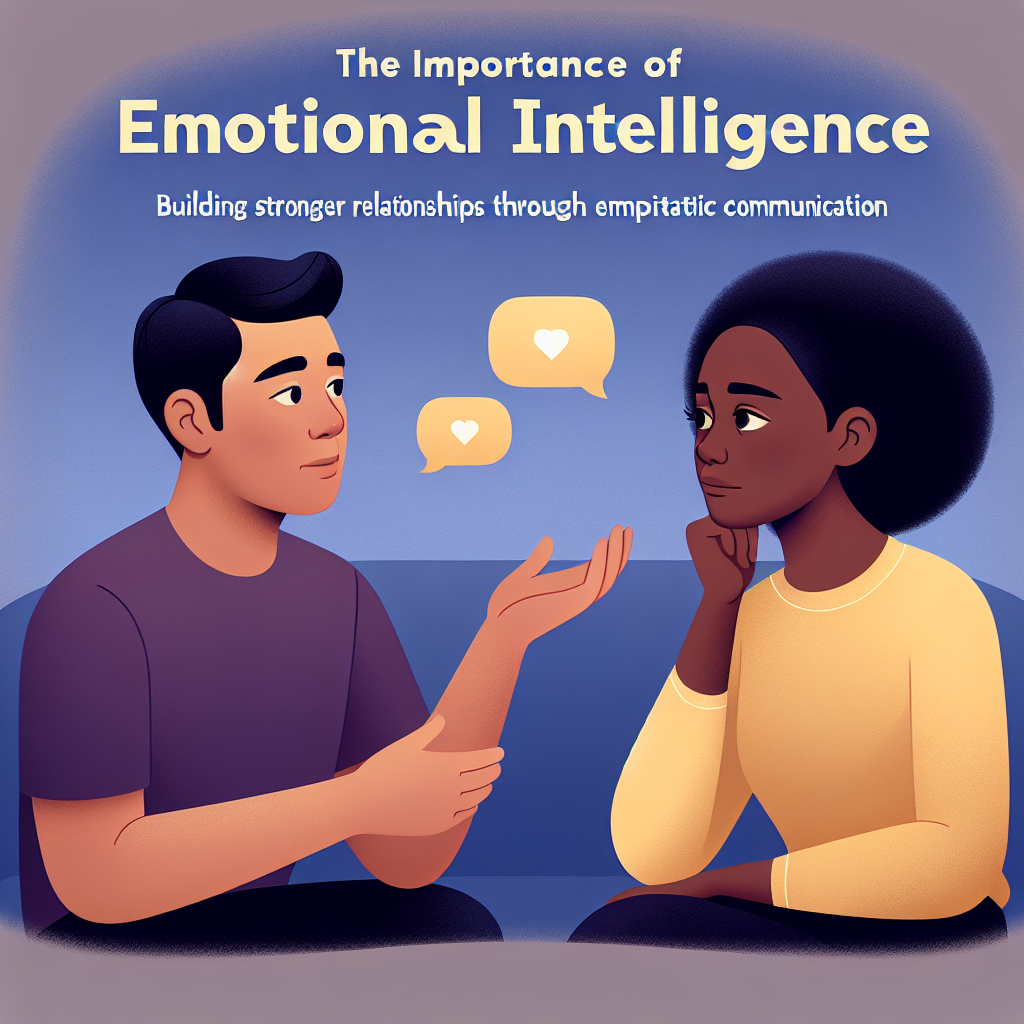In our fast-paced and busy world, it can be easy to forget the importance of emotional intelligence in building strong relationships with others. However, cultivating emotional intelligence is one of the most valuable skills we can develop to foster meaningful connections and enhance our communication with others. By being able to understand and manage our own emotions, as well as empathize with the emotions of others, we can create stronger bonds and more fulfilling interactions.
Emotional intelligence is defined as the ability to recognize, understand, and manage our own emotions, as well as the emotions of others. It involves skills such as self-awareness, self-regulation, empathy, and social skills. When we possess emotional intelligence, we are better able to navigate the complexities of human relationships and communicate effectively with those around us.
One of the key components of emotional intelligence is empathy, which is the ability to understand and share the feelings of others. By putting ourselves in someone else’s shoes and truly listening to their thoughts and emotions, we can build trust, foster understanding, and strengthen our connection with them. Empathetic communication involves active listening, validation of emotions, and responding with compassion and understanding.
When we practice empathetic communication, we are able to build stronger relationships with our friends, family, colleagues, and even strangers. By showing that we care about their feelings and perspectives, we create a sense of safety and trust that allows for open and honest dialogue. This can lead to deeper connections, improved conflict resolution, and greater emotional intimacy in our relationships.
Emotional intelligence also plays a crucial role in leadership and team dynamics. Leaders who possess emotional intelligence are better able to inspire and motivate their team members, resolve conflicts, and create a positive and inclusive work environment. By understanding and managing their own emotions, leaders can set an example of emotional intelligence for others to follow, creating a culture of empathy and collaboration within their organization.
In addition to improving our relationships with others, emotional intelligence also has a positive impact on our own mental health and well-being. When we are able to recognize and manage our emotions in a healthy way, we experience less stress, anxiety, and depression. By practicing self-care, such as mindfulness, meditation, and journaling, we can cultivate emotional intelligence and increase our resilience in the face of life’s challenges.
FAQs:
Q: How can I improve my emotional intelligence?
A: There are several ways to improve your emotional intelligence, including practicing self-awareness, self-regulation, empathy, and social skills. You can engage in activities such as mindfulness meditation, journaling, and therapy to deepen your understanding of your own emotions and those of others.
Q: What are the benefits of developing emotional intelligence?
A: Developing emotional intelligence can lead to stronger relationships, improved communication, better conflict resolution, and enhanced mental health. It can also lead to greater success in your personal and professional life, as emotional intelligence is a key factor in leadership and teamwork.
Q: Can emotional intelligence be learned?
A: Yes, emotional intelligence can be learned and cultivated over time. By consciously practicing empathy, active listening, and emotional regulation, you can develop your emotional intelligence skills and improve your relationships with others.
Q: How can emotional intelligence improve leadership skills?
A: Emotional intelligence is essential for effective leadership, as it allows leaders to connect with their team members on a deeper level, inspire and motivate them, and resolve conflicts in a constructive way. Leaders who possess emotional intelligence create a positive and inclusive work environment that fosters collaboration and trust.
In conclusion, emotional intelligence is a vital skill that can greatly enhance our relationships and communication with others. By cultivating empathy, self-awareness, and emotional regulation, we can create stronger bonds, resolve conflicts, and foster a sense of connection and understanding in our interactions. Through practicing empathetic communication and self-care, we can build healthier relationships, improve our mental health, and cultivate a more compassionate and empathetic world.





Leave A Comment